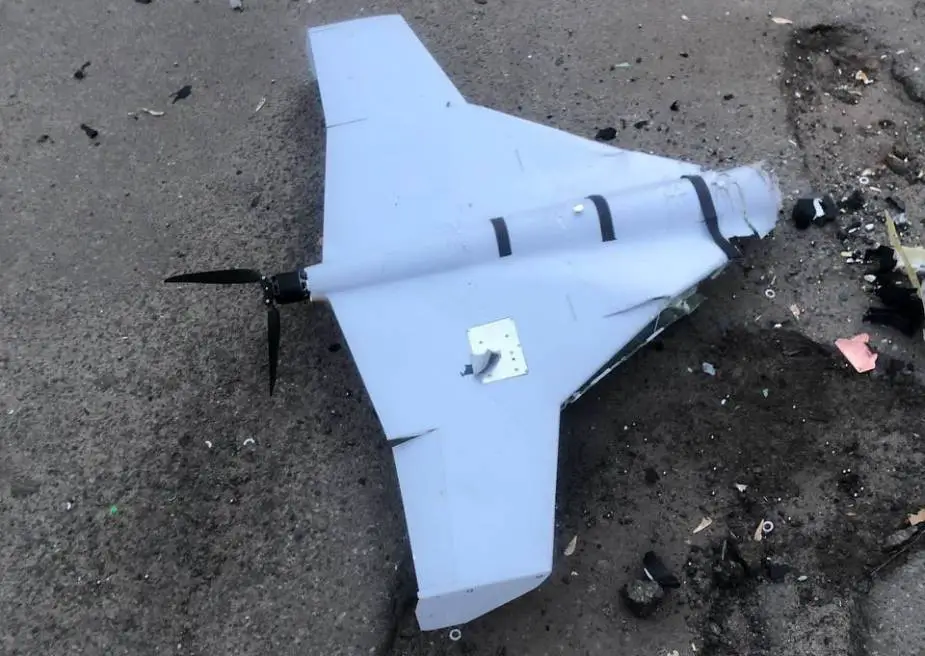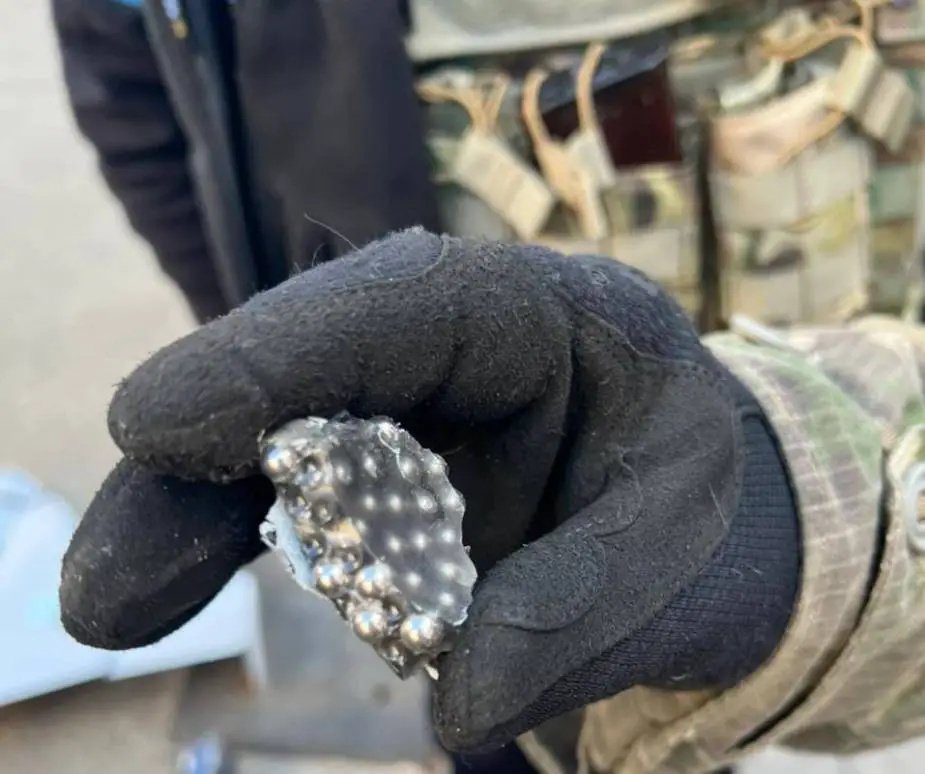Breaking news
Russia using Kalashnikov Zala Aero Kub suicide drones in Ukraine.
Felix Woessner tweeted that Russia apparently uses Zala Aero Cube (Kub) loitering munitions – or kamikaze drones – in Ukraine. Russia already used Kub drones in Syria from 2015.
Follow Army Recognition on Google News at this link

Russian Kub loitering munition (suicide drone) recuperated by the Ukrainian forces (Picture source: Twitter account of Felix Woessner)
Kub-E loitering munition, an upgraded variant of the original Kub, was developed by Zala Aero (part of the Kalashnikov group of companies) and it successfully passed state tests in November 2021. On December 21, 2021, Army Recognition already reported that serial supplies of the new KUB-BLA loitering drone developed by Zala Aero (part of the Kalashnikov Group) could begin in 2022, which appears now confirmed. The company’s press office said then: “The new strike drone has been recommended for acceptance into service. The serial supplies are expected to begin in 2022”.
According to the developer, the UAV has high accuracy, can be covertly launched, it is virtually silent and easy to operate. “This system represents a step to completely new conduct of operations”, said Rostec’s CEO Sergey Chemezov at IDEX 2019, when the Kub-BLA was unveiled. “The high-precision drone comes within 30 minutes at a speed of 130 km/h. The shell is delivered to the target by the complex regardless of terrain or whether the target is concealed or not, both at low and high attitudes It is an extremely accurate and efficient weapon being very hard to combat by traditional air defense systems.”
According to the press office, the Kub-BLA is multipurpose and can be used as part of a swarm of drones. It can reach 80 to 130 km/h. Its flight duration is 30 minutes and its maximum payload is 3 kg. After the launch, the drone can loiter in the air to detect a target and then attack it from the upper hemisphere, being able to perform a diving pass along the vertical trajectory. This allows it to attack tanks in the field from the upper hemisphere, piercing the turret that has minimal armor protection in the upper part.

"Due to their wide-area effects, the use of cluster munitions in populated areas is incompatible with the international humanitarian law principles governing the conduct of hostilities", UN spokesperson Liz Throssell told Geneva-based journalists (Picture source: Twitter account of Felix Woessner)





























